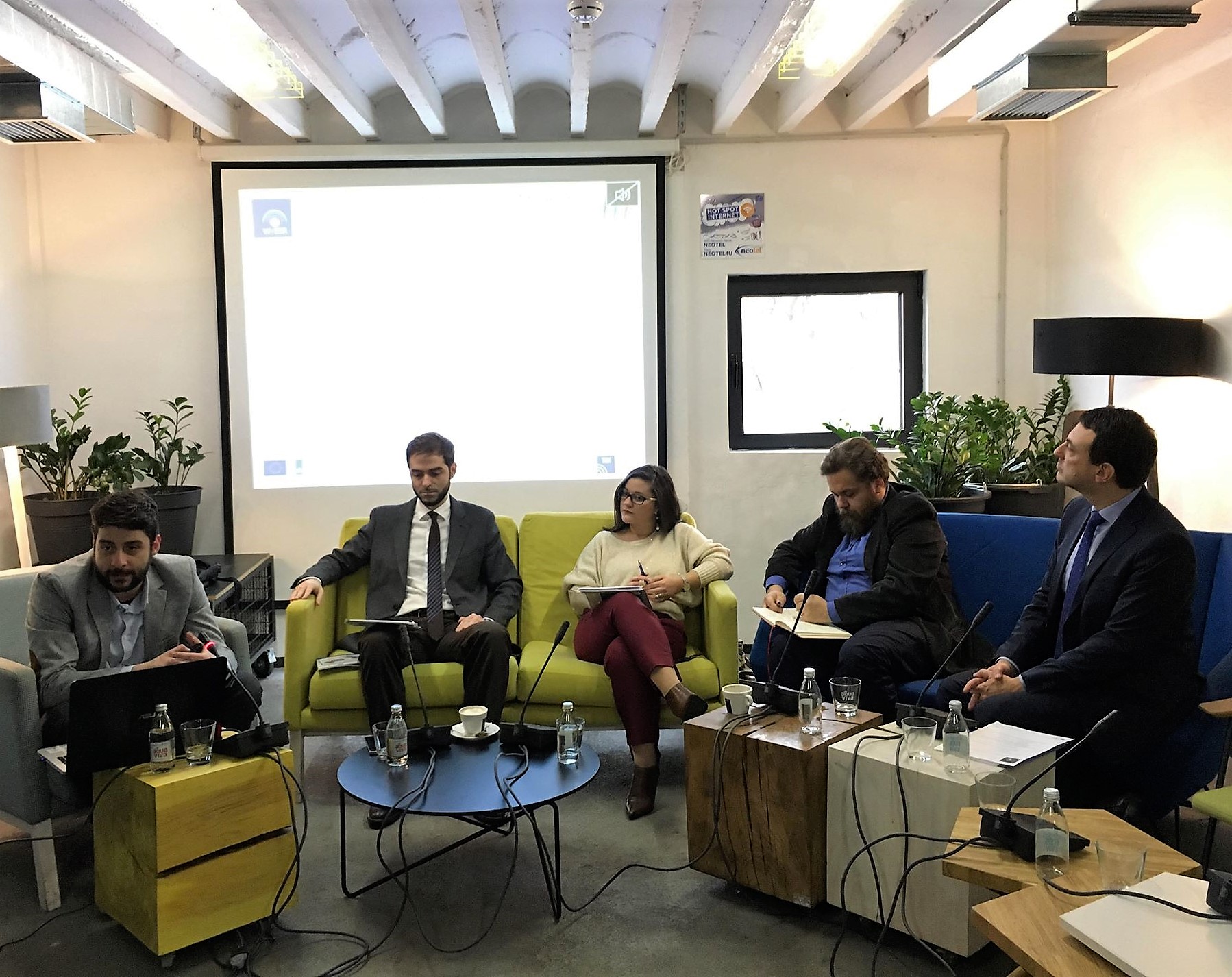National PAR Monitor – Macedonia 2017/2018 Presentation in Skopje
The findings from the monitoring of the public administration reform were presented at the conference, with a focus on civil society and its role in monitoring and supporting public administration reforms in the Republic of Macedonia and its path to the EU. Key stakeholders gathered from CSOs, independent experts and institutions gathered in one place in order to foster dialogue for creating better administration. The conference served to present and discuss the first National Report on the monitoring of PAR. The conference was divided into two panels. Discussion in the priority areas of public administration: Strategic framework; Public service and human resources management; Public finance management.
Discussing on the first panel were Malinka Ristevska-Jordanova from EPI and WeBER researcher Aleksandra Ivanovska, the Minister of Information Society and Administration Mr. Damjan Mancevski, professor Dragan Gocevski from the Faculty of Law "Iustinianus Primus", as well as Neda Maleska from the Center for Change Management.
Discussion in the priority areas of public administration: Policy making and coordination; Responsibility, Accountability and Transparency; Providing services and ICT support to the administration. Discussing on the second panel were Angel Mojsovski, WeBER researcher, Kristina Dimovska from the Ministry of Information Society and Administration, Aleksandar Nikolov from the ZENIT Association, and Misha Popovic from the Institute for Democracy "Societas Civilis" – Skopje.
The event was moderated by the journalist Vasko Popetrevski.







